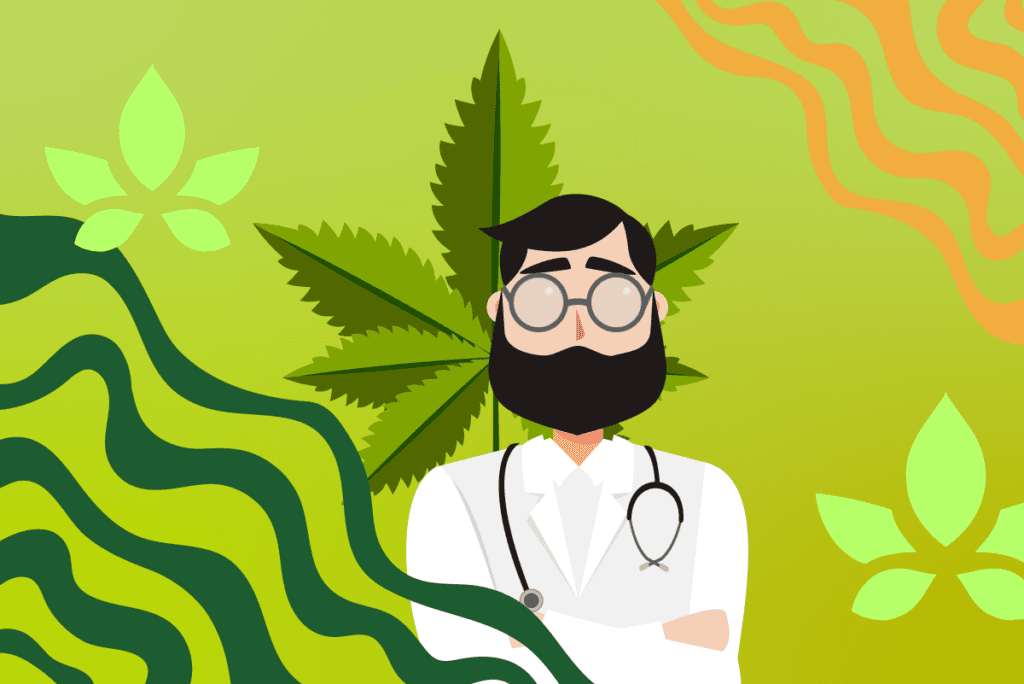Depression, also known as major depressive disorder or clinical depression, is a prevalent mental condition that leads to feelings of sadness and a lack of interest. It impacts your thoughts, emotions, and behavior, often resulting in various emotional and physical issues.
Patients with depression are often treated with prescribed antidepressants or mood stabilizers but there is a limited success rate as the result of some patients not responding to these two options at all, while others fail to achieve remission. Many people tend to use cannabis to help with their depression because weed makes them feel good to escape from all the terrible feelings they are experiencing.
Key Takeaways
- Depression is a common mental disorder that makes you feel sad or lose interest in activities for a long time.
- There is no single cause for depression as the condition can be caused by several factors.
- THC and CBD interact with the receptors in the body to help reduce stress and anxiety.
- A study from the University of Buffalo found that THC and CBD can help alleviate stress and depression but more studies still need to be done.
- Depression tends to develop into addiction.
- Cannabis use for depression can also worsen depression, trigger schizophrenia, and lead to amotivational syndrome.
Understanding Depression
The World Health Organization (WHO) defines depressive disorder or depression as a common mental disorder that involves a depressed emotion or loss of pleasure or interest in activities for a long time. Depression can affect all aspects of life which can increase high chances of problems at home, school, and work. Any individual can experience depression but women are more likely to have depression than men.
Common Symptoms of Depression
When a depressive episode occurs, an individual may experience feelings of sadness, irritability, emptiness, and hopelessness together with the loss of interest in doing any kind of activities including daily activities such as getting up and taking a shower. These feelings or moods fluctuate – they can last most of the day, nearly every day, or for at least two weeks. Other symptoms associated with depression may also include:
- Change in appetite or weight
- Low energy or feeling tired all the time
- Having trouble falling asleep or sleeping too much
- Feelings of guilt or worthlessness
- Thoughts about dying or suicide
- Thoughts about hurting yourself
- Poor concentration
Causes of Depression
The National Health Service (NHS) of the UK stated that there’s no single cause of depression. Depression is a result of various factors which could be from a complex interaction of social, psychological, and biological factors such as adverse life events – unemployment, bereavement, or traumatic events. People who have been through some events like abuse, domestic violence, or family breakdown are likely to develop depression.
The Science Behind Cannabis and Depression
When consuming cannabis, the body responds to the ingested substance by releasing neurotransmitters that affect the human brain and body. The chemical compounds called endocannabinoids, naturally made by the body, influence the neurotransmitters. Typically, the human brain maintains neurotransmitter levels that affect your senses, moods, and more. However, when it can’t maintain the neurotransmitter levels, people would experience great sadness, irritability, and moodiness which are the main symptoms of depression and other mental health disorders.
Cannabinoids such as tetrahydrocannabinol (THC) and cannabidiol (CBD) interact with CB1 and CB2 receptors in the body and impact the brain leading to the reduction of stress and anxiety symptoms. Both chronic stress and anxiety disorders often happen with depression and can worsen the depressive symptoms.
Cannabis May Help Reduce Depression Symptoms
People who have depression are more likely to use cannabis than those who don’t. According to recent research, people with the condition tend to use cannabis to relieve their symptoms which is one of the most common reasons why people use weed.
Research on the potential benefits of cannabis to help with depression is still in the early stages and in-depth further evidence is needed. Initial studies by the Research Institute on Addictions (RIA) at the University of Buffalo are examining endocannabinoids, depression, and stress. This animal research indicates that cannabinoids like THC and CBD can help alleviate stress, a significant factor contributing to depression in both animals and humans. Currently, the Food and Drug Administration (FDA) has not yet approved cannabis for treating depression. However, a very recent study published in March of 2024 was conducted among the patients in the LVR University Hospital in Essen, showing an interesting finding. Patients have demonstrated improvement in using medical cannabis by reporting a reduction in the severity rate of their depression.
According to a 2018 study, smoking cannabis can reduce levels of depression in the short term, however, researchers also found that repeated use isn’t effective for any long-term reduction of the symptoms. Another study published in 2021 reported that participants who used cannabis, particularly CBD-rich products, had lower levels of depression than nonusers. The study also reported that those who use cannabis also have a higher quality of life as well as better sleep quality.
Cannabis Strains From Siam Green That Helps With Depression
- Biscotti Mintz – This is a highly potent Indica hybrid weed strain with 22% to 25% THC levels that is widely used in the medical field for its uplifting and euphoric effects making the strain effective in treating mental health symptoms such as stress and depression.
- Black Truffle – An Indica hybrid strain that produces approximately 18% THC which delivers moderate psychoactive effects making them popular among medical cannabis users and recreational users.
- Cozmic Frost – The strain is a sativa-leaning strain with 60% Sativa and 40% Indica that provide a strong psychoactive effect from high THC levels of 26% to 30% making it an ideal choice for treating depression.
- Grape Stank – A hybrid strain highlighted in its therapeutic potential especially alleviating severe conditions such as depression, bipolar disorder, and chronic pain with its THC content ranging from 22% to 24%.
- Jealousy – A perfect 50/50 hybrid strain known for its potent effects with THC levels ranging from 28% to 30% and 0% CBD making the strain perfect for those who seek mood enhancement.
Health Risks of Cannabis Use for Depression
Depression is a risk factor for developing cannabis use disorder (CUD) – a medical term to call a ‘cannabis addiction’ which leads people to start using cannabis more often or rely on the drug as a way to cope with the condition. About 30% of cannabis users will eventually become dependent on it, particularly those who begin using cannabis before the age of 18 tends to increase in the percentage of chances.
Here’s what else to keep in mind about the potential risks of cannabis:
Worsen Depression – The effects vary from person to person, therefore, cannabis may not work for some of you who have depression as it can make your depression worse.
Amotivational Syndrome – Smoking large amounts of weed can lead to lower life satisfaction, increased relationship problems, and a decrease in career which can create a phenomenon called ‘amotivational syndrome’ when one becomes apathetic, socially withdrawn, and performs everyday activities below their capacity before their cannabis use.
Psychiatric Disorders – Cannabis is also linked with other mental health conditions such as psychosis – a serious mental disorder characterized by detaching from reality with the symptoms of hallucinations and delusions. Cannabis may trigger schizophrenia or psychosis.
Cannabis can also impact other physical and mental effects, which may include:
- Impaired body movements
- Breathing problems (which are related to smoking or vaping weed)
- High blood pressure
- Increased heart rate
- Altered senses
- Memory problems
- Altered sense of time
Note: It’s important to take into consideration that high doses of THC also often increase anxiety, paranoia, and panic. Consulting with a qualified professional before going for cannabis to help with depression is highly suggested.
Wrap Up
Depression is when you feel sad, irritable, or lose interest in basic activities for a long time. It is caused by several factors such as traumatic experiences like losing someone close to you. THC and CBD from cannabis interact with both CB1 and CB2 in our body and impact the brain to reduce stress and anxiety which often occur in people with depression. However, there is not enough evidence to support or recommend the use of cannabis for depression as more evidence still needs to be studied.




